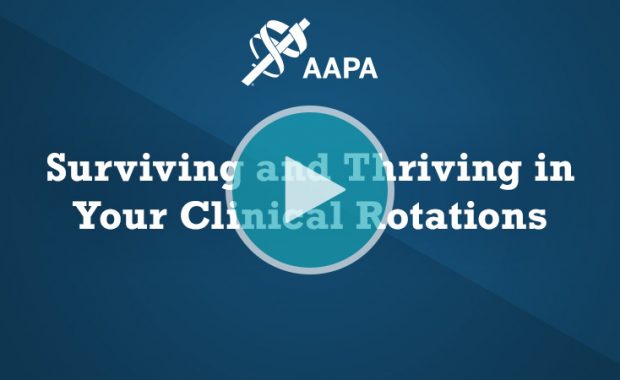Career Resources

PA JobSource
PA JobSource is an interactive, map-based career exploration platform that is available exclusively for AAPA members. Explore the map and connect with virtually every PA employer in the United States today.
PA Scope of Practice
PAs are proven and integral members of the U.S. healthcare system. But what exactly do PAs do? And who decides? The boundaries of each PA’s scope of practice are determined by these parameters: education and experience; state law; policies of employers and facilities, and the needs of the patients.
Payer Reimbursement Policies for PAs
Explanation of third-party reimbursement for PAs.
An In-Depth Guide to PA Recruiting
Learn about the remarkable contributions that PAs make every day and gain insights into how you can recruit highly qualified PAs for your open positions. Read interviews from expert sources on what matters in PA recruitment.
Putting on Your Oxygen Mask: The Importance of Taking Care of Your Mental Health to Succeed in PA School
Mental health affects everyone from PA students to practicing PAs. Join AAPA for this webinar featuring a discussion on mental health. Learn what you can do now to and as you prepare for your PA career to take care of yourself!

Surviving and Thriving in Your Clinical Rotations
Get an overview of helpful tips and pearls of wisdom for students entering the clinical phase of their education. Learn how to study during clinicals, how to elicit and act on feedback, and ultimately maximize the clinical experience.
PAs and Team Practice
A summary of PAs in team-oriented care models.
Tackling Clinical Rotations
Conquer clinical rotations! Learn common do’s and don’ts with our video and get even more helpful and detailed tips with our guide.
5 Tips for Surviving Your Clinical Rotations
Program directors share collected wisdom to ensure you make it through your clinical phase, plus student resources to help you along the way.
Advice for PA Students from the AAPA Community
Huddle, AAPA’s members-only online community, fosters discussion amongst PAs and serves as a repository for helpful career-related information. Recently, seasoned PAs shared their best advice for PA students and new grads.

What is a PA?
What is a PA (physician associate/physician assistant)? PAs are licensed clinicians who practice medicine in every specialty and setting.
Surviving Your Clinical Phase
During Clinical Rotations you will put your theoretical medical knowledge to the test in real-world clinical settings. Under the supervision of a preceptor, you will be placed on health teams in several different medical settings and specialties.
What You Always Wanted to Know About EMPAs, But Were Afraid to Ask
In this article written for the American College of Osteopathic Emergency Physicians, the Society of Emergency Medicine Physician Assistants (SEMPA) provides a brief history of emergency medicine PAs (EMPA), gives a primer on PA training and discusses EMPA onboarding and utilization.
Competencies for the Physician Associate Profession
Professional competencies for physician assistants include the effective and appropriate application of medical knowledge, interpersonal and communication skills, patient care, professionalism, practice-based learning and improvement, and systems-based practice.

